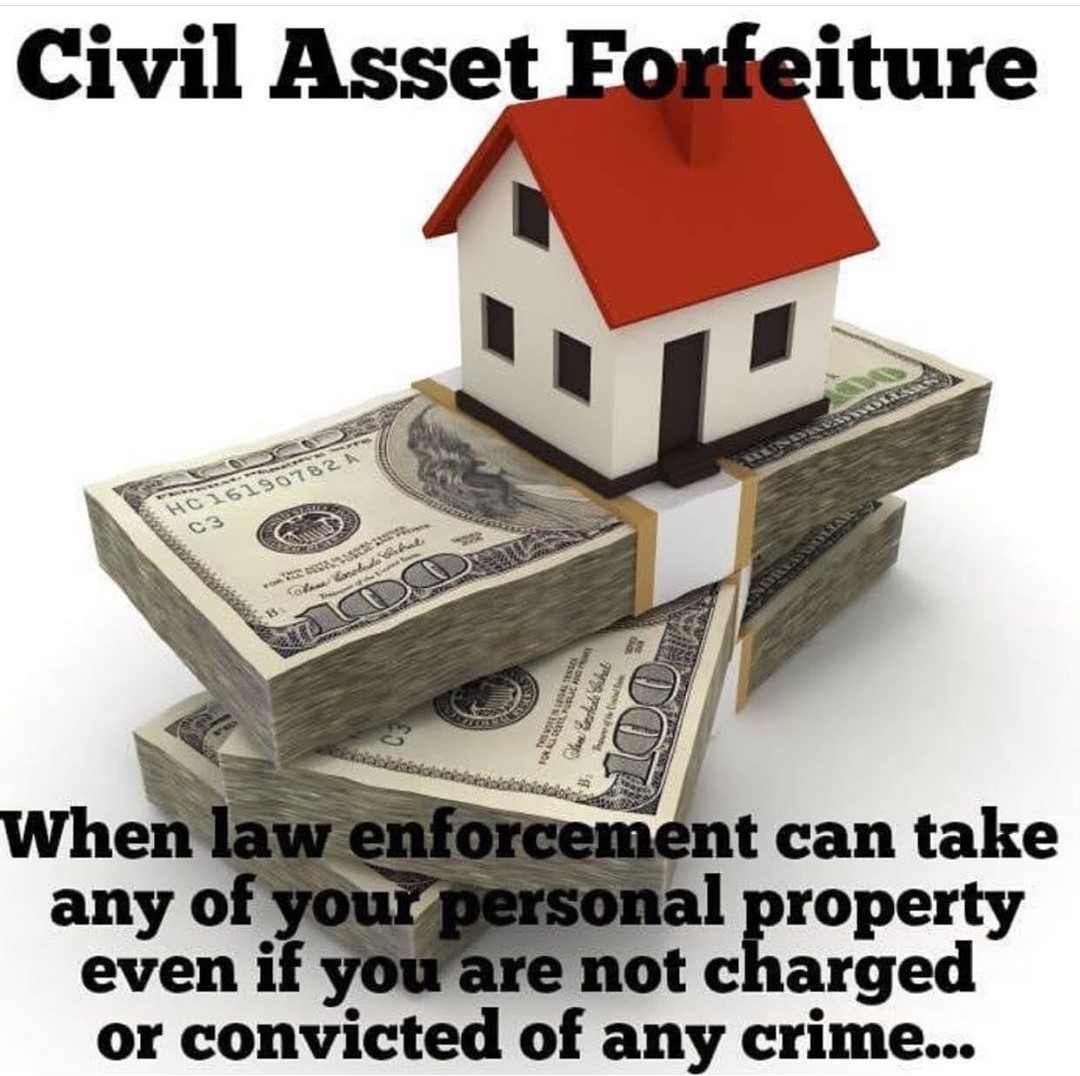Guy describes the living nightmare of the US government trying to seize his family’s motel
US senators held a hearing this week to talk about reforming a bizarre law that lets authorities seize your property even if you’ve never been charged with a crime.
They heard from a man who knows about this “living nightmare” firsthand.
Russ Caswell, a former motel owner who is in his 70s, told the US Senate about how his local police department in Massachusetts, which was working with the US attorney’s office, tried to seize his family’s motel, all because of a law known as civil-asset forfeiture.
Caswell described the experience as “a living nightmare — brought to us courtesy of the United States government.”
Civil forfeiture lets the government seize cash or property that’s tied to criminal activity, even if the owner of that property was never charged with a crime.
In Caswell’s case, he said, federal agents came knocking on his door in September 2009 because 15 people had been arrested for drug crimes at his hotel during a 20-year period. They said they were going to seize his property.
“I have never been charged with or convicted of a crime my entire life. No one in my family, or any of our employees, has ever been involved in a crime at the motel concerning drugs,” Caswell said in prepared testimony for the Senate on Wednesday. “To us, the forfeiture case seemed ludicrous.”
Under civil forfeiture law, the government has to file a lawsuit “against” property or cash it wants to seize. This leads to funny-sounding lawsuits, like “US v. Approximately 64,695 Pounds of Shark Fins.”
Caswell spent three years and borrowed $60,000 to fight the government’s lawsuit against his property. A judge ultimately dismissed the action against Caswell’s hotel in 2013, and he got to keep his property.
The experience took a toll on him, though.
“Immediately, the lawsuit began to drive customers away from our motel,” Caswell said, “and our long-term tenants were worried about their future.”
One problem with civil forfeiture, as Caswell mentioned, is that states and localities that team up with the federal government to seize cash or property often get 80% of the proceeds through a program known as equitable sharing.
“This incentivizes police to seize particular property to obtain a direct financial reward,” US Sen. Charles Grassley (R-Iowa), said at the hearing Wednesday. “When this occurs without pursuing a criminal conviction, or even an arrest, the chances rise that the rights of innocent people will be violated.”
Additional Reading:
Prosecutorial Discretion in Asset Forfeiture Cases | Sheriff Indicted for Civil Asset Forfeiture Abuse | Mooresville Police Face Legal Fight Over Cash Seized From Suspects | Civil Asset Forfeiture and Structuring | FBI gives up attempt to confiscate more than $1 million in California pot-store cash | Countering Civil Forfeiture Myths with Facts | Navigating Civil Asset Forfeiture (The Court Process) | North Dakota Takes A Bite Out Of Civil Asset Forfeiture | Federal Loophole Thwarts State Curbs on Police Seizures of Property | Analysis of Supreme Court Case over Civil Forfeiture | Indiana Solicitor General: It’s Constitutional to Seize a Car for Driving 5 MPH Over the Speed Limit | Statute of Limitations in Forfeiture Cases | U.S. Supreme Court To Hear Indiana Civil Forfeiture Case | Breaking Down Asset Forfeiture: Know Your Rights | Cops Taking Your Cash | Civil Forfeiture in America | What to Do If Your Bank Account Is Frozen by the DEA | California Penal Code 186: Understanding the Threat and Your Rights | The Settlement Process in Asset Forfeiture Proceedings | DEA & TSA Take $82,000 Life Savings From Pittsburgh Retiree | The Government Seized This Innocent Man’s Car Without Due Process. SCOTUS Won’t Hear the Case. | Stealing Is Wrong, Even When It’s The Government Doing It | The Difference Between Administrative and Judicial Forfeiture | How police can take your stuff, sell it, and pay for armored cars with the money | Armored Truck ROBBED By The POLICE In 2021? Civil Asset Forfeiture





![Figure-17[1]](https://www.rucci.law/wp-content/uploads/2023/12/Figure-171.png)

![500311638[1]](https://www.rucci.law/wp-content/uploads/2023/12/5003116381.jpg)

![shutterstock_120789925_0[1]](https://www.rucci.law/wp-content/uploads/2023/12/shutterstock_120789925_01.jpg)

